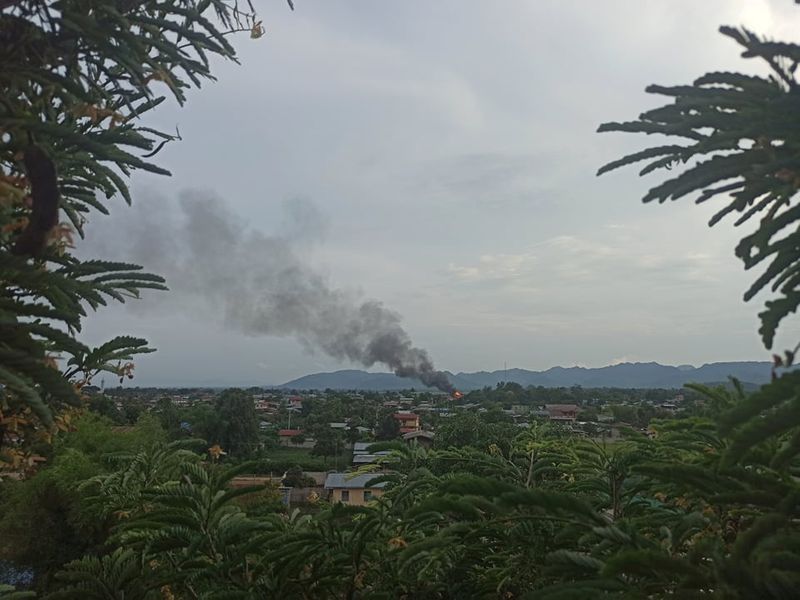(Reuters) -A militia group in Myanmar’s conflict-torn Kayah State announced a halt to attacks on military targets on Tuesday, after appeals from local communities to cease fighting that had damaged homes and displaced more than 100,000 people.
The Karenni National Defence Force (KNDF), one of the largest of several civilian militias formed in recent weeks to oppose a Feb. 1 military coup, said it had temporarily suspended offensives but remained opposed to the military takeover.
“The KNDF urge people to be united,” it said in a statement.
People’s Defence Forces allied with pro-democracy groups have stifled the junta’s bid to impose order, but some activists say the well-equipped military’s use of heavy weapons in response to their attacks has put innocent lives in danger.
Myanmar has been in turmoil since the military overthrew Aung San Suu Kyi’s government, citing its refusal to address what it said was fraud in a November election. International observers have said the ballot was fair.
Suu Kyi appeared in court on Tuesday for the second day of her trial over a slew of charges that her supporters say are bogus and intended to kill off her political career.
Her lawyers declined to disclose details of Tuesday’s court proceedings, but said the 75-year-old was in a better condition than the first day, when they said she had appeared unwell.
“She is resilient as always. She looks healthy,” said Min Min Soe, a member of Suu Kyi’s legal team. “We just realised that she is suffering toothache. Because she told us. If not, we would not know. She is strong and confident as before.”
Min Min Soe said the court addressed the charge of incitement. The case centres on efforts in the days after the coup by Suu Kyi’s allies to urge embassies and international organisations not to recognise the junta.
‘TREASONOUS’ OPPONENTS
The military has since outlawed many of its opponents, labelling them as treasonous or terrorists, including a self-proclaimed National Unity Government (NUG) that seeks to lobby the international community and prevent the junta from consolidating power.
The NUG in early May announced the creation of People’s Defence Forces, many armed only with hunting rifles, who have for weeks been ambushing security forces in border lands after unmet demands for the release of people arrested for joining anti-coup protests.
The NUG did not immediately respond to a request for comment and a military spokesman did not answer calls on Tuesday.
The KPDF’s announcement it was halting attacks comes a few days after United Nations High Commissioner for Human Rights Michelle Bachelet condemned the army’s “outrageous” use of heavy weapons, including in Kayah State in the east of the country, but urged militias to keep civilians from harm.
The junta on Monday said Bachelet failed to mention “acts of sabotage and terrorism” and “the sufferings and deaths of the security forces”.
Amnesty International on Tuesday called for Suu Kyi’s release and sharply criticised the Association of Southeast Asian Nations (ASEAN) bloc, whose non-interference policy, it said, was “enabling the military’s deadly rampage”.
The U.N. and Western and Asian powers have backed ASEAN’s role as a mediator in the Myanmar crisis, but some of its members have criticised the junta’s failure to implement a plan it agreed to in April, which included halting violence and starting dialogue.
“Millions of people in Myanmar are losing faith in ASEAN,” said Emerlynne Gil, Amnesty International’s Deputy Regional Director for Research.
“The regional bloc must change course and offer a lifeline to people in Myanmar by getting behind international efforts to protect civilians and urge the release of all those arbitrarily detained, including Aung San Suu Kyi.”
(Reporting by Reuters Staff; Writing by Martin Petty; Editing by Alex Richardson)






















